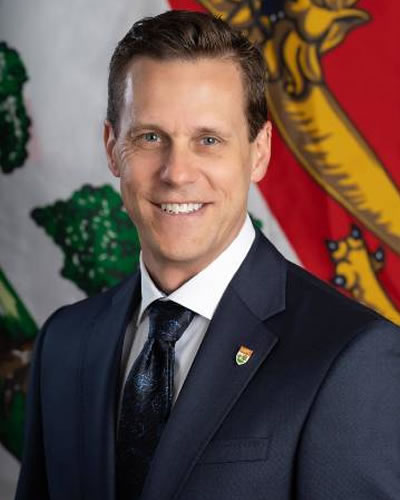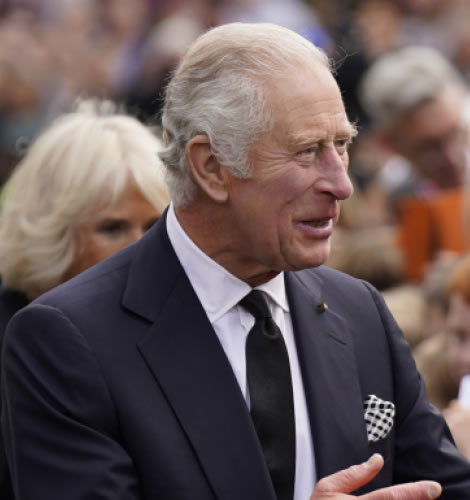Canadian Electoral System
The country of Canada is a constitutional monarchy. This means that Canada is both a monarchy (a king or queen is the head of state) and a democracy -- Canadian citizens vote to elect political candidates to serve as their representatives in government.
There are three levels of government where Canadians can vote in democratic elections:
- municipal (village, town or city)
- provincial or territorial (province or territory)
- federal (national)
Elections in Canada
Municipal Elections
Municipalities are usually responsible for services such as water supply, sewage, streets maintenance, snow removal, police, fire department, parks, etc.
In a municipal election you vote for a councillor, the person who will represent your electoral district, and a mayor or chairperson, the head of your municipality.
The people who are candidates in municipal elections do not represent any political party.
In PEI, municipal elections are held on the first Monday in November every four years in Charlottetown, Summerside, Cornwall and Stratford, and every three years in the rest of the municipalities. Some rural communities have election meetings, where both the nominations and the elections take place at the same meeting.
PEI Provincial Elections
Provincial government is responsible for things such as education, health, tourism, social programs, etc.
In PEI provincial elections you vote for a Member of the Legislative Assembly (MLA) to represent your electoral district.
Candidates in provincial elections are usually affiliated with a political party. The leader of the party with the most winning candidates (the most 'seats') after an election becomes the Premier of the province. The leader of the second most successful party becomes the Leader of the Official Opposition.
In the province of PEI there are currently 27 electoral districts, which is also the number of seats in the provincial legislature. Every Island community is part of a district. Starting in 2011, PEI has set election dates every four years, on the first Monday in October.
Federal Elections
Federal government in Canada is responsible for things that affect the whole country, such as tax system, citizenship and immigration, national defence, foreign affairs and trade with other countries, etc.
In federal elections you vote for a Member of Parliament (MP) to represent your electoral district in the Canadian House of Commons. Federal electoral districts are also known as 'constituencies' or 'ridings'. MP candidates usually belong to a political party. The Canadian House of Commons currently has 308 seats.
In Canada, we do not vote for the Prime Minister. The leader of the political party with the most 'seats' (the most winning candidates) after an election becomes the Prime Minister of Canada and the head of Canadian government. The leader of the party that ends up second gets to be the Leader of the Official Opposition.
Most provinces and territories have a certain number of MPs based on their population. However, in PEI we have four MPs who represent the residents in four electoral districts:
- Egmont (the city of Summerside and west)
- Malpeque (east of the city of Summerside to Charlottetown)
- Charlottetown (the city of Charlottetown)
- Cardigan (east of the city of Charlottetown)
There are many registered political parties in Canada. However, not all parties have representation or candidates who run in federal elections in PEI. Only five of them were represented in the 2011 election.
Non-elected Government Officials
In Canada, all levels of government have certain positions for which voters do not get to vote. These are considered political appointments. Some of them are:
- Federal cabinet ministers -- the Prime Minister picks which MPs are in charge of the various government departments.
- Provincial cabinet ministers -- the Premier of PEI chooses which MLAs are in charge of provincial government departments.
- Governor General and lieutenant governors -- Governor General of Canada is appointed by the monarch, and the provincial and territorial lieutenant governors by the Governor General, both on the advice of the Prime Minister of Canada.
- Senators -- the Senate of Canada is a component of the Canadian Parliament which reviews laws proposed by the MPs in the House of Commons. Senators are appointed by the Governor General on the advice of the Prime Minister.
Every Vote Counts
Everyone who is eligible to vote should vote. Every vote counts in an election.
In Canada today, voting in elections is a right defined by our Charter of Rights and Freedoms, for citizens 18 years of age and older. But it was not always this way. In Canada’s early history, only men who were property owners and over the age of 21 could vote. Women, persons of certain Asian origins and aboriginal people were among those who fought for decades for the right to vote. Some have only received that right in the second half of 20th century.
Be Informed
It is very important to become an informed voter. Before an election, keep up with the issues that affect your community, province and your new country -- Canada. Read the news, watch television, listen to radio, and attend public forums or debates to get more information on the political candidates and their party's platforms. You can visit candidates' campaign offices to find out more about them and which values they represent.
Voting Eligibility
In order to vote in an election in Canada you must be:
- a Canadian citizen (people living in Canada with permanent or temporary resident status cannot vote)
- at least 18 years of age on election day
- resident of an electoral district where the election is being held (for a PEI provincial election, you must have resided on the Island for at least six months before the government calls the election)
- be registered on the voters list for your electoral district
Make Sure You are on the Voters List
In any election you should make sure you are registered on the voters list or the list of electors.
For a federal election, you should receive a voter information card in the mail before the election. This card tells you that you are registered to vote and contains the information about where and when you can vote.
If your information on the card is incorrect or you do not receive a card, you can communicate with Elections Canada to get the contact information for your returning officer (RO). You should then contact your RO before the election to correct your voter information or to get a voter registration form.
Before PEI provincial elections, two confirmation officers should visit your home to confirm if you are on the list of electors. If you are home, they will register any eligible voters in the household. They will leave a voter confirmation record with information about where and when you can vote. It is a good idea to take this confirmation record with you when you go to vote.
If the confirmation officers visit your home twice and you are not there, they will leave a card for you to contact your RO. You should then call your RO to get registered.
If for any reason your name is not on the voters list on election day, you may still be able to register and vote. In that case, go to the appropriate polling station and ask to speak to the returning officer.
On Election Day
On election day, you need to do the following:
- Go to the appropriate polling place during the hours of the election (usually from 8am to 8pm in federal elections, and 9am to 7pm in provincial elections). Polling stations are usually set up at schools, community or church halls, or other similar public places in your neighbourhood.
- In a federal election you must take your federal voter information card and provide acceptable identification.
- In a PEI provincial election it is a good idea to take your voter confirmation record with you.
- Give your name and address to the officials at the polling place. They will check your name on the voter's list and give you a ballot.
- Take your ballot behind the screen where you can vote in private.
- Unfold your ballot and mark an 'X' in the white space next to the name of the candidate for whom you wish to vote.
- Fold your marked ballot again and give it to the polling official. The official will tear off a piece of the paper, and give the ballot back to you to put it in the ballot box.
You can take time off from work with pay to vote in an election if:
- there is not enough time for you to vote before or after your scheduled work hours (specifically, if you do not have 3 consecutive hours of your own time to vote in a federal election or 1 hour of your own time to vote in a PEI provincial election), and
- you arrange with your employer to take time off from work to vote in advance of election day (note: your employer gets to choose the time that you take off)
Advance Polls
If you cannot vote on election day, or you wish to vote in advance, there are advanced polls where you can vote early, before the election day. Information on advance polls should be available on your voter information card for federal elections, or your voter confirmation record for provincial elections.
Mail-in Ballot
If you cannot vote on election day, nor go to an advance poll to vote, you can register to vote with a special ballot called a 'mail-in ballot'. This is helpful if you are a student, a member of the military, or are travelling at the time of election.
To request to do this, you need to fill in a form and send it along with the appropriate identification well in advance of election day. To vote by mail-in ballot, you should contact the appropriate election authority (federal, provincial or municipal). [See related resources]
Acceptable Identification in Federal Elections
To receive a ballot at the polling station in a federal election, or to register to vote at the advance polls or on election day, you must prove your identity and address of residence. You can:
- show one original government-issued identification document which includes your photo, name and address, such as your driver's licence.
- show two original pieces of identification, one of which has to have your name and address, and one at least your name (for example, your health card and electrical bill), or
- be vouched for by someone who knows you and whose name appears on the list of electors in the same polling division, and who has acceptable identification documents (for example, a neighbour or roommate)
Identification in Provincial Elections
In PEI provincial elections, if you don't have identification documents at the polling station, you will need to take an oath -- a sworn promise that you are telling the truth about who you are and where you live.
[See related resources]





